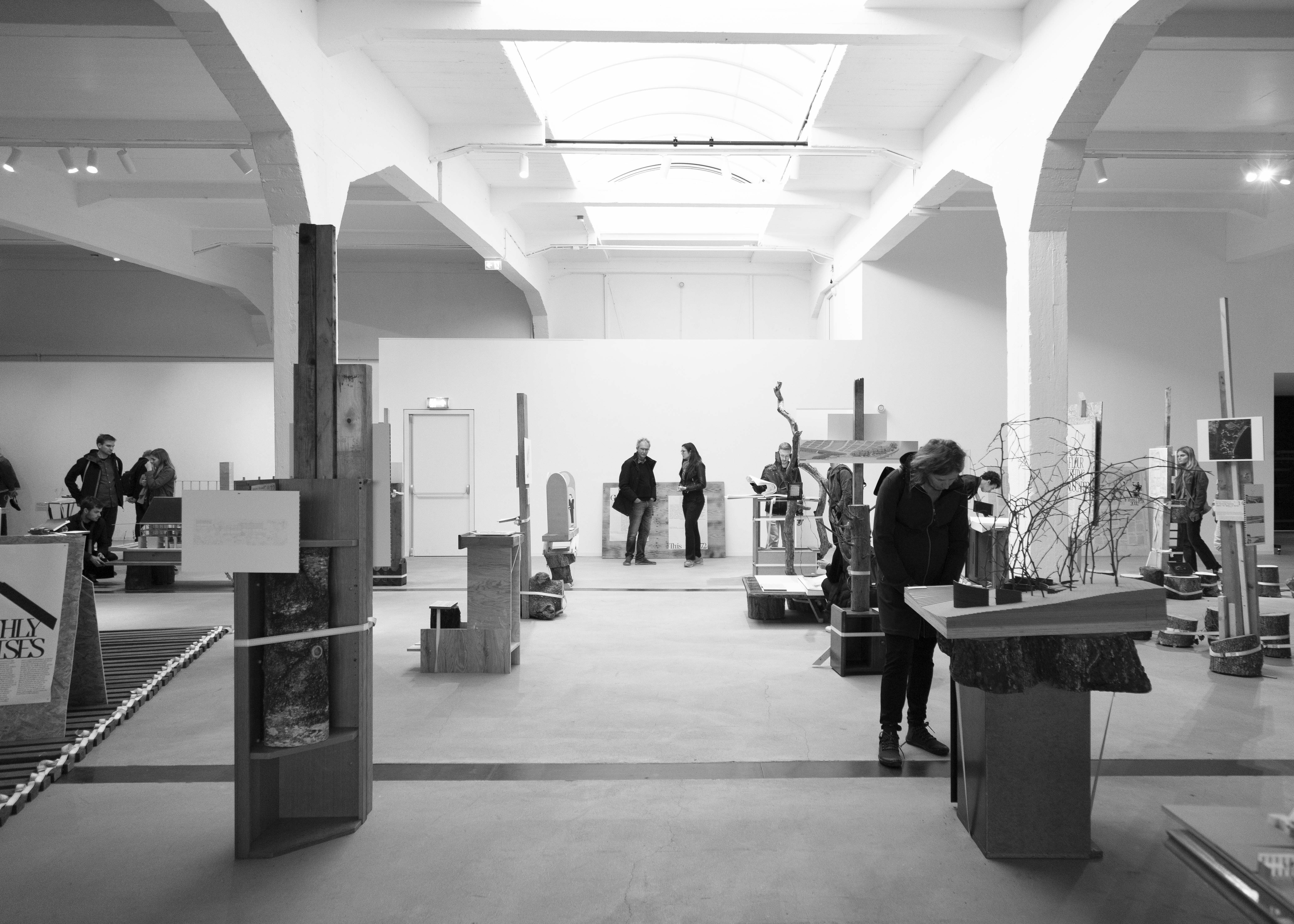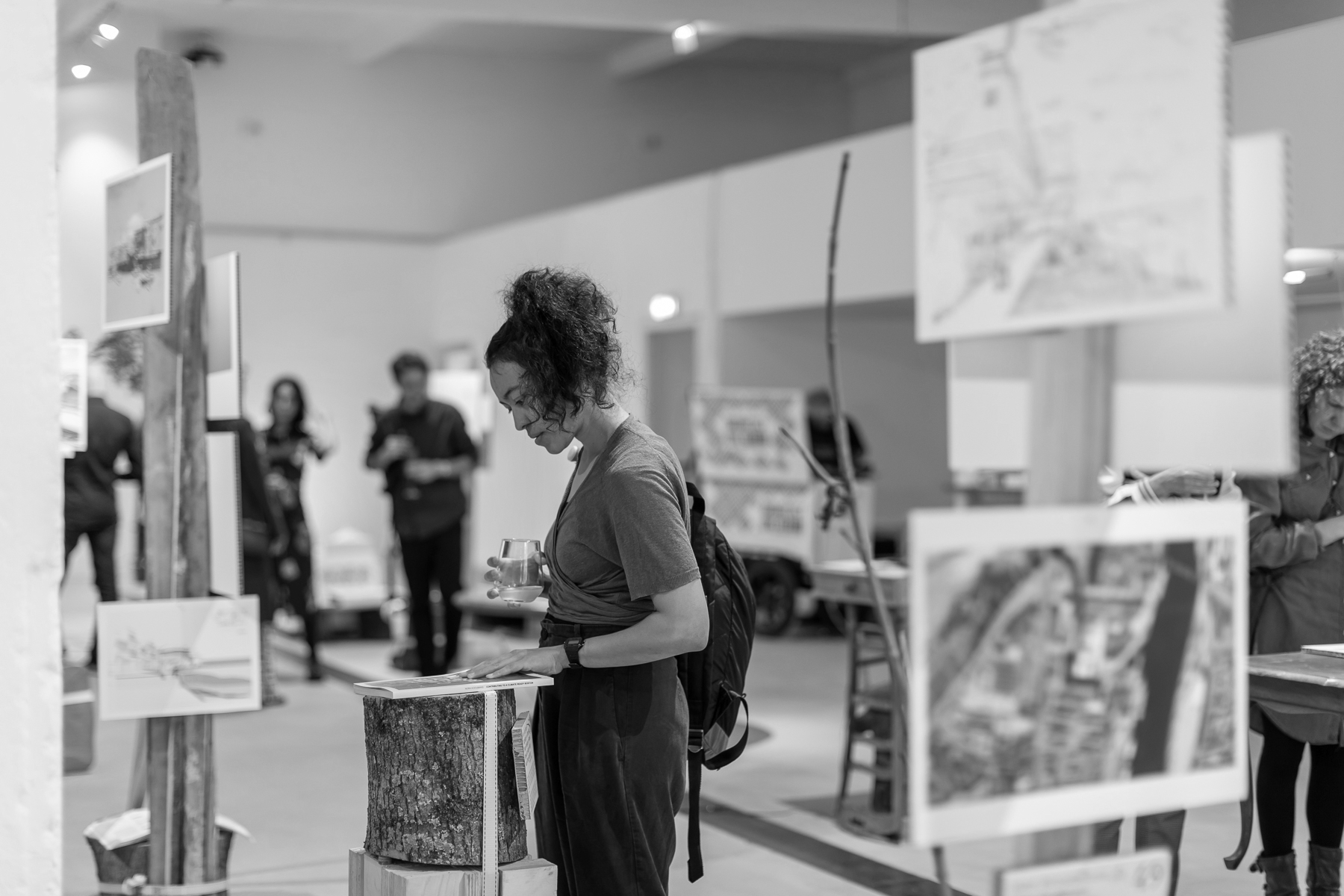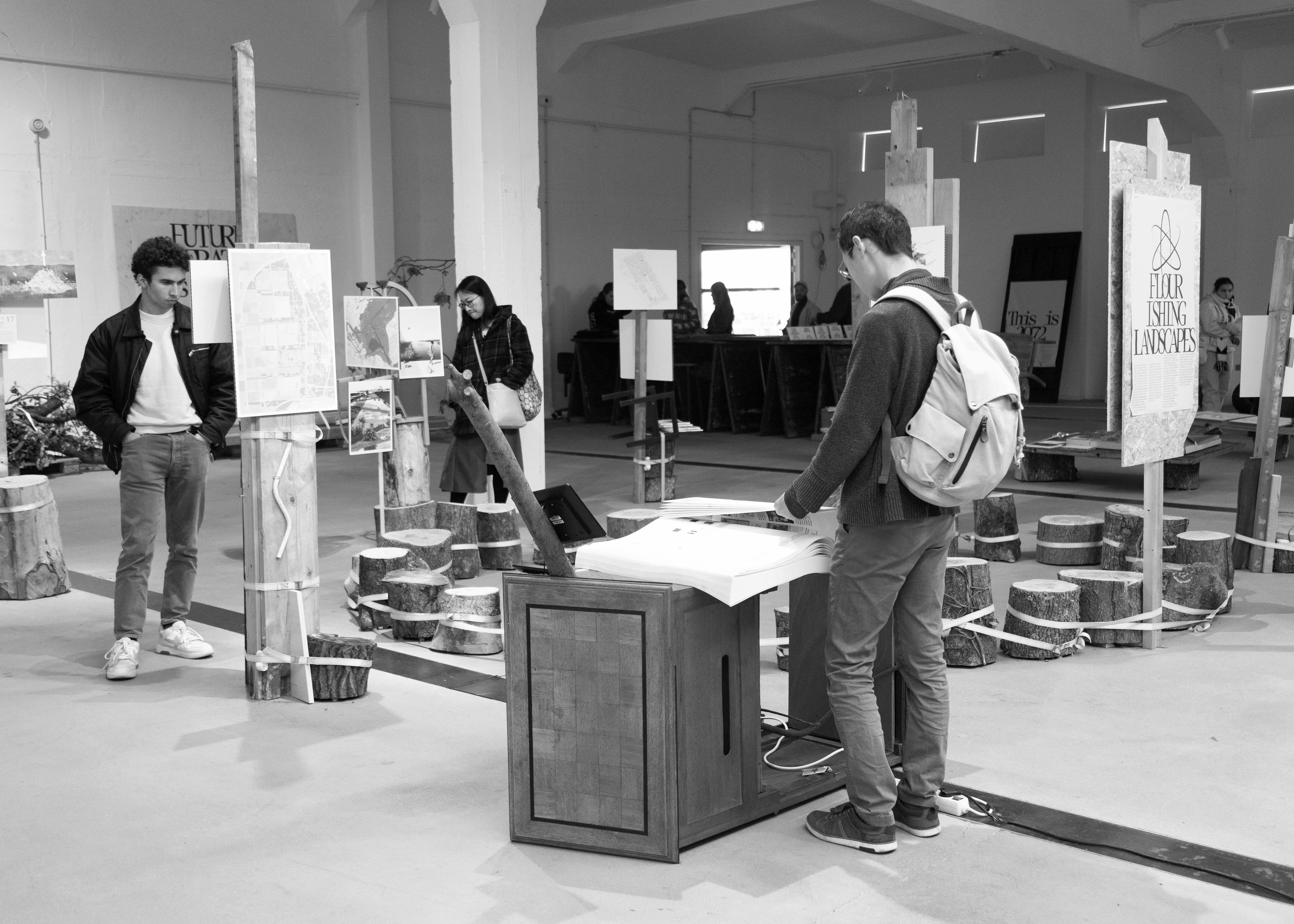FUTURE GENERATION: THIS IS 2072

During the 10th edition of the architecture biennale the exhibition FUTURE GENERATION will showcase a group of young design practitioners in the Keilezaal – they represent the promise for a hopeful future, both in the short-term and in the long run.
A Future Worth Living For!
At this moment in time, humankind possesses the strongest combination of (scientific) knowledge and (digital) tools the world has ever known. We have everything in place to create an entirely alternative structure for human society – if only we set our heads and hearts to planetary stewardship. Let’s build a future worth living for!
FUTURE GENERATION, THIS IS 2072
The exhibition FUTURE GENERATION showcases the best architectural graduation projects realized from 2018 to 2022 in Belgium and the Netherlands. All of the academies and universities with master’s programs in the Lowlands were invited to contribute, resulting in the submission of 75 projects by 13 institutions. The selected projects address the increasing time pressure on combating climate change in our ever-accelerating society. Together, these designers form the decisionmakers of tomorrow, the FUTURE GENERATION, THIS IS 2072, a moment when all selected projects play their part in the transition, reflecting on a hopeful and promising future.

2072 in Five Chapters
Divided into five chapters, the exhibition contains fragments, projects, topics, and movements that will determine the architectural landscape of 2072: the year the Club of Rome oriented its prophetic publication The Limits to Growth towards. The five chapters are: Local Cosmopolitans, Earthly Promises, Urban Biotopes, Social Ecologies and Flourishing Landscapes.
LOCAL COSMOPOLITANS reconnects with the genius loci, a need to operate within the existing context, a sense of place, of connectivity and belonging. In 2072 we’ve learned from the past, contributed to the locally important briefs, and act as LOCAL COSMOPOLITANS.
EARTHLY PROMISES demonstrates a more-than-human design approach, using natural processes as the base of design: a dive into the earth beneath us, and into the time beyond the human impact. In 2072 we’ve stopped exploiting our planet and are co-existing with its natural processes as EARTHLY PROMISES.
URBAN BIOTOPES focuses on the densification and decentralization of our inner cities – and by doing so creates a maximally diverse biotope that benefits us all. In 2072 we’ve created cities where everything is connected; from vast built super-surfaces to small mobility connections and automated living pods, and from civic gardens to a caring metropolis of health networks. Diverse organisms live together in URBAN BIOTOPES.
SOCIAL ECOLOGIES engages with social and societal issues – sometimes provocatively – by initiating dialogue about the politics of our designed environment. In 2072 architects actively anticipate and co-create with communities, they initiate debates leading to innovative projects and collective knowledge networks, and shape new SOCIAL ECOLOGIES.
FLOURISHING LANDSCAPES tries not only to use the available, renewable resources, but most of all to generate productive landscapes that add resources and purpose. In 2072 our supply chains are sustainable (food)production systems that have a low impact on our spatial environment and create hybrid, stacked, and connected FLOURISHING LANDSCAPES.

Participants
Justin Agyin, Devant Asawla, Jesper Baltussen, Louise Blancquaert, Pauline Borremans, Manon Bourdin, Capucine Perroud, Albane Vassault, Alexandre Boyens, Annebé Brouwer, Mara-Teodora Catargiu, Amabel Chiarito, Amina Chouairi, Mahaut Dael, Michal Dlugajczyk, David de Boer, Jelle De Vries, Nandini Debiesm, Domien Demey, Vineet Dhall, Pauline Dubois, Mick Dubois, Yves Dupont, Manon Florès, Ludovic Gaffare, Marjolaine Gardet, Jean-François Gauthier, Suzan Gelissen, Wouter Geyskens, Jakob Ghijsebrechts, Jacopo Grilli, Julie Helewaut, Twan Hermans, Willem Hubrechts, Stephanie Idongesit Ete, Léonie Jacqmin, Pierre Jadoul, Jakub Jekielm, Lieke Jildou de Jong, Kate Kerkhofs, Arghavan Khaefi, Alex Kirschstein, Tessa König Gimeno, Nora Kooimans, Gaspar Lambé, Jan-Uwe Lorent, Pieterjan Maes, Madeleine Mans, Leonardo Marchese, Camille Monti, Channah Mourmans, Eilien Neumann, Olga Konstantinovic, Dries Pattyn, Janne Peeters, Charles Preham, Hanna Prinsen, Tom Quin, Benoît Roux, Zhuo-ming Shia, Bavo Smets, Alice Solveig Nouvet, Lulu Song, Vianney Soulard, Fien Sprengers, Rapa Surajaras, Oliwia Tatara, Amélie Thomas, Lesia Topolnyk, Umut Türkmen, Cente Van Hout, Robbe Van der Mynsbrugge, Silko van der Vliet, Max van der Westerlaken, Ziega van den Berk, Daniël van der Woude, Freek van Riet, Anna Zan, Alexandra van Zyl, Lindsey van der Wetering, Manu Vanderveken, Jan Vanduffel, Leon Voeckler, Josine Vos, David Vrambout, Chelsey Watthy, Aicha-Louise Wenger, Stéphanie Wolf, Hao Yan,Jacopo Zani, Santiago Ardila, Juan Benavides, Daniella Camarena, Stef Dingen, Marco Fusco, Theodora Gelali, Shaiwanti Gupta, Jack Garay Arauzo, Sheng-Hao Hsu, Marianthi Papangelopoulou, Gent Shehu, Felipe Quintero, Siyuan Wang, Jin Young Chang, Maria Christopoulou, Maria Finagina, Ana Herreros, Cantis, Georgia Katsi, Jacklyn Mickey, Ryan Ridge Rahardja, Nishi Shah, Michael Tjia, Heng Yu, Nigel Alarcon, Pooja Bhave, Fabiola Cruz, Mariano Cuofano, Alonso Díaz, Xiaoyu Ding, Sandra Garcia, Inés Garcia-Lezana, Martino Greco, Sebastian Hitchcock, Alejandra Huesca, Yesah Hwangbo, Takuma Johnson, Yi-Ni Lin, Cristhy Mattos, Preradon Pimpakan, Adi Samet, Raymond Tang, Kulaporn Temudom, Paola Tovar, Danai Tsigkanou, Jesse Verdoes, Rongting Xiao